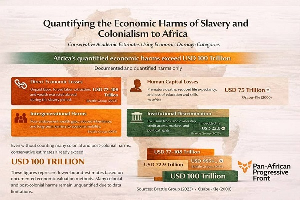According to the Global Employment Trends for Youth (2017) report published by the International Labour Organization, around one-fifth of the world’s young people are not in employment, education or training. Despite positive economic outlooks, unemployment remains high, and youth are more likely to be unemployed than adults around the world. Low productivity levels, informality and working poverty remain major challenges, and as populations age, today’s young workforce will have to increase support elderly persons. These global conditions require concerted efforts to ensure that young women and men have access to decent jobs which are largely unavailable.
Technical and Vocational Education (TVET)
But one thing is clear, Technical, Vocational Education Training (TVET) remains one key solution to helping the world and our country Ghana deal with the unemployment challenges we face. This is an established fact world over. Training that gives direct skills to young people to be able to step out into the world of work or as entrepreneurs who run startups is where the trend of youth employment is shifting towards now.
Either as automobile mechanics, building contractors, home decorators or fashion designers, TVET trainees always stand a better opportunity of being an employer instead of an employee over their colleague senior high school graduates if they are unable to further their education to the tertiary level. So TVET must be an important part of our employment creation strategy as a people in this era when white collar jobs are becoming less and less available as banks and other companies collapse.
TVET and Free SHS
The nation has been taken by storm following the introduction of the free Senior High School education policy by the Akufo-Addo administration. This policy has resulted in increased enrolment in senior high schools which has helped absorb students who may have been dropouts but for the introduction of the policy. When government enumerated the list of items it was paying for on behalf of students under the Free SHS programme, the Ministry of Education was not clear as to which practical tools/equipment/materials for technical students (which are mostly expensive for parents and students) are being covered under this policy.
The Minister of Finance in the 2018 budget statement stated more than 1 billion cedis was being allocated for Free SHS and scholarship initiatives (which supposedly included TVET). The Minister was however not clear as to how much out of the Free SHS budget was allocated to TVET.
The posture of these two ministries suggests that the Ghana government is not really prioritizing TVET education in the country or if it is, it is not clear about it. Government, through the cabinet in February 2018, approved a five-year TVET strategy (as announced by the Chief Executive Officer of the Council for Technical and Vocational Education Training COTVET on the February 12, 2018), which is yet to be made public as we speak. This strategic plan would have been the basis for allocating clear budget to the TVET sub-sector.
Worrying situation
This is a very worrying situation. With increased enrollment at the Senior High School level whilst infrastructure for tertiary education across the country remains the same, chances are high that a large number of SHS graduates will not have the opportunity to progress higher up the academic ladder. SHS education should thus be giving students adequate skills they can survive on in case they don’t progress any further.
And no other branch of Senior High Education than technical education can better prepare students for the world of work. So one would have expected that the introduction of Free SHS should have come along with a prioritization of technical education. It’s very worrying that this hasn’t been the case. And this increases the danger of us having more SHS graduates lacking the basic skills to survive after school.
Final words
There has been increased attention and concentration on technical education around the world. A few African countries have realized it is an opportunity for sustainable national growth and development. But these countries (including Ghana) have not prioritized TVET financing in their national budgets, allowing largely donors to finance this sector. The dwindling nature of enrollment figures into TVET institutions is partly attributed to inadequate financing. The courses are generally more expensive to pursue than other courses like Business, General Arts, and the like. This needs to change.
Ghana should clearly show the budgetary allocation to TVET if it sees technical and vocational education as a key sector that can propel sustainable national growth and development. The over dependence on donors like the European Union, World Bank, Japan International Cooperation Agency (JICA) and German Development Cooperation (GIZ) for resources to fund TVET education is not a good strategy and way to go. Government of Ghana must prioritise TVET education and invest a lot more resources into it. Let me conclude by making the point that the Free SHS policy will not be able to help transform Ghana’s educational and employment sectors as we are all expecting unless there is a deliberate effort to prioritise TVET education as well. Government must put its money where its mouth lies else we are all in trouble as a people.
The Girls Advocacy Alliance (GAA) Programme of Plan International Ghana project seeks to: End child marriage, reduce sexual violence and abuse, reduce commercial sexual exploitation of children and ensure girls and young women have increased access to technical and vocational training education (TVET) and decent work opportunities so they don’t fall prey to abuse.
Opinions of Monday, 22 October 2018
Columnist: Habib Kamal Deen















